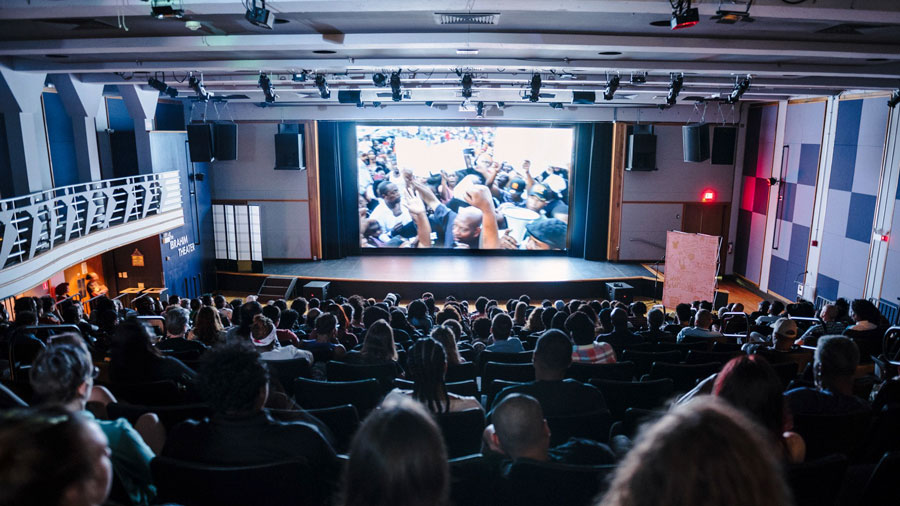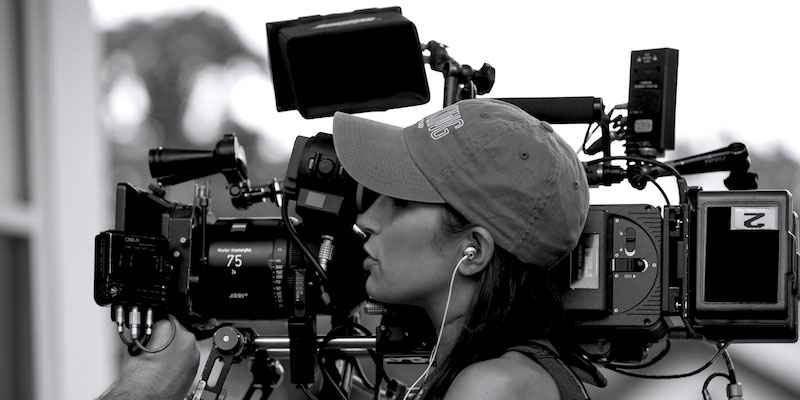Planning A Film Festival? Here's Where To Start
Whether you’re an indie film buff looking to bring a niche group of loyal movie nuts together or you’re an event planner looking to capitalize on a hot industry, starting your own film festival can be an incredibly rewarding experience.
But how do you go from movie guru to a film festival host? Here’s our A to Z guide to help you throw together an amazing festival.

1. Establish Your Event Details
What kind of film festival do you want to create? The last time someone dug into the total film festival numbers, there were over 7,500 festivals. But that was all the way back in 2013 when the events industry was producing a fraction of its current +$1 trillion.
Today, there are a TON of festivals. So, you need to know exactly what kind of festival you want to throw if you want to compete with the right competition. Here are some questions you should ask yourself:
- What is my festival name? Is the domain name available? Popularity?
- When do I want to run my festival? Should it be in spring, winter, summer, or fall? When are your competitors active?
- Is my festival a competition? A normal get together? What are my goals?
- What would be on a typical festival schedule? Will there be dinner? Will there be merchandise?
- What kind of movies should be shown? Categories? Are they in a specific genre? Are they from a specific country? Are they catering to a specific culture?
- Is there a theme to the festival (e.g., horror, romance, etc.)?
- How many film entries are going to be accepted?
- How can people enter their films?
- What kind of rules and regulations are needed for entries?
-
What is the prize? How many winners will there be?
Once you start answering some of these questions, they will naturally branch off into more granular questions. Overall, iron out your festival blueprint before you do anything else.
2. Get Budgeting
You. Need. A. Budget. We know! It’s boring. But you don’t want to be like the +60% of businesses that don’t budget each year. You want to be prepared. The last thing you want is to get overwhelmed by festival expenses and sink the ship halfway through the event.
Sure. Bookkeeping can be a serious pain, but remember those +60% of businesses that don’t have a budget? They correlate heavily with the +50% that fail in their first 4 years.
Let’s put it this way. Do you remember that time in college where you were scared to check your bank account? You don’t want your film festival to feel that way. Even if the festival is a passion, you can go about setting up a charity or trust. But don’t throw money away by failing to plan adequately.
Here are some considerations when budgeting:
- Projected revenue
- Expected ROI
- Marketing budget
- Demand forecasting
- Estimated Costs
- Cashflow
- Sponsorships
Smartsheet offers a variety of free event budget templates; anything from a simple template to highly complex.
3. Research Your Market Place
What kind of people are going to be coming to your festival? Some of you may be thinking, “everyone who loves movies, of course!“ But let’s take a moment to try to convince you to research a little harder.
Have you ever played darts? If you just take a handful of darts and throw them at the board, you’re probably going to miss. And the few that do land are probably going to be randomly scattered— resulting in a subpar score. If you hyper-focus and throw the dart at the bullseye, you get a ton of points.
That’s how you should treat event marketing campaign. Do the research upfront. Aim the dart. The more research you do, the more informed you are when you create marketing campaigns and choosing the right platforms. Should you use Facebook ads, or should you dominate the Twitter feed? Figure it out who your target market is and how to attract them.
4. Pick Your Venue
Picking the right venue isn’t always easy. 65% of event marketers actively struggle with this part. Luckily, film festivals can be created almost anywhere. You just need to make sure you have the right amount of space and equipment.
Get an estimate of how many people are attending. And by “attending,” we mean:
- Directors
- Producers
- Writers
- Actors
- Audience
- Critics/Judges
- etc.
Once you figure it out, round up a little. You don’t want to give the impression of an empty event. But you don’t want everyone squished together. Look for a happy medium.

5. Contact Distributors and Film Makers
Try to contact distributors/filmmakers months before your event. This way, they have time to prepare (or even film) the films in your event. This will also give you some spare time to review entries and determine the pecking order.
The last thing you want is to be forced to binge-watch 13 movies in 2 days. Sure! That sounds fun at first. But when 1/3 of those are stinkers, it can be more stressful than you think.
6. Post Your Event Online
It’s time to start selling tickets! Get the details of your event out to EVERYONE that you can. Create killer social media campaigns, actively pursue word-of-mouth leads, and think about your ticket technology. Wristbands, RFID tags, and even ticket security can help save you headaches during registration AND at the gate.
7. Assemble the “Crew”
You have two options. Hire people or find volunteers. We recommend both. Hire for the more critical roles and volunteer some easier functions of your film festival. You may even be able to find people willing to work for entrée tickets (especially if you run multiple days-in-a-row.)
Think about the following core functions that you'll need assistance with:
- Lights/Equipment
- Projector/Screen
- Audio/Mics
- Food/Catering?
- Doormen
- Bouncers
- Ushers
- Merchandise
- Host/Announcers
8. Technical Thoughts
What kind of films are you showing? Do you have the right protector for those old silent films? Do you need any additional equipment (i.e., lenses, etc.) for your projectors to complement any unique aspect ratios? Are you handling archival prints from distributors?
What about the speakers? Are they properly wired and hooked up? Do you have the right amp? These questions should be answered before you open the doors.
Here is a list of equipment you'll need:
- Large/scale venue projectors
- Ticket registration rentals (scanners, printers, box office, etc. )
- Audio/Sound equipment
- Microphones/lav mics for speakers or presenters
-
Creating the experience (drape wall, lighting, theater accessories, etc.)
9. The Day of the Event
When the event day comes, prepare to be busy. You need to test run equipment, make sure that every film is locked-and-loaded, triple check projectors, oversee staff and volunteers, do sound checks, and meet-and-greet attendees. Sure! You can sit and enjoy a film... if you want. But chances are, you won’t. The adrenaline of events for event planners is the beauty of everything coming together and the smile on people’s faces — not that cool film that you’ve already pre-seen.
To properly prepare you for your event day, you can download our free day-of event checklist to make sure you've done everything you need to before those curtains open!






